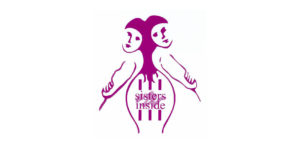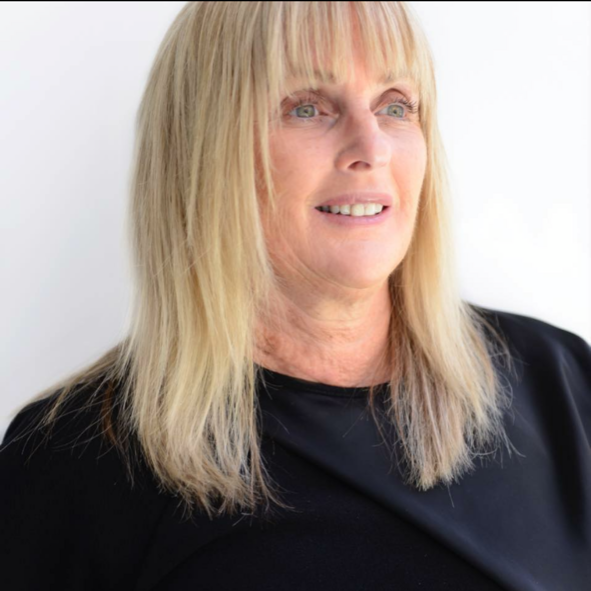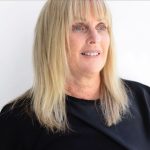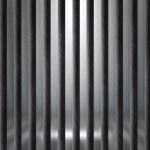A Death Sentence for Inmates: An Interview With Sisters Inside CEO Debbie Kilroy

The Berejiklian government passed a suite of emergency laws to get the state of NSW through the COVID-19 crisis on 24 March. These included provisions allowing NSW Corrective Services commissioner Peter Severin to release inmates early on parole.
However, more than two weeks later, nothing has been done. And this is despite the risks prisoners are facing due to their continued detainment during the pandemic being well understood and prominently discussed. Indeed, that’s why they bothered to pass the laws.
According to NSW Justice Health, so far there have been no confirmed cases of COVID-19 amongst inmates, but there has been the case of one staff member at Long Bay Prison Hospital testing positive for the novel coronavirus.
And there’s no denying that once there’s an outbreak in one of Australia’s correctional facilities the virus will spread throughout the population with ease. This is a group of people – due to their current and prior circumstances – with a high proportion of individuals with compromised health.
Russian roulette
While it’s a crime to simply continue to detain the bulk of the prisoner population in an overcrowded prison system, it might be good to take a moment to reflect on the close to 3,500 women inmates, amongst the general population of Australian adult detainees, which numbers almost 43,000 people.
Women in prison are some of the most disadvantaged people in the community. And while the overwhelming majority have suffered some form of family or domestic violence, most of them are being held in detention over minor, nonviolent offences.
The average sentence for a woman being held in a Queensland correctional facility is only 3.9 months. About 40 percent of women on the inside are being held on remand, meaning they’re yet to be proven guilty. And a large number are the primary carer for children.
So, then there’s the understanding that there are thousands of mothers – who have been victims of violence themselves and come from circumstances of extreme social disadvantage – currently being locked up for a short period, whilst a life-threatening disease could break out at any moment.
Sisters Inside
Sisters Inside CEO Debbie Kilroy is calling on authorities to start releasing inmates from correctional centres before they start dying unnecessarily. She points out that any of the nation’s facilities could easily turn into a situation akin to a cruise ship.
Ms Kilroy was also one of the first people in this country to have contracted COVID-19. And she’s just spent over three weeks self-isolating with Boneta-Marie Mabo (Neta-Rie), after having sat on a plane a few rows behind home affairs minister Peter Dutton, who also came down with the virus.
Sydney Criminal Lawyers spoke to Ms Kilroy, whilst she was still in isolation, about her thoughts on what a COVID-19 outbreak would mean in the prison system and the actions her organisation is taking to secure the early release of vulnerable women in her state’s prison system.

Firstly, Australia has gradually made its way to stage 3 restrictions to prevent the spread of COVID-19. And while some jurisdictions have put mechanisms in place that allow for the early release of some inmates, nothing has really been done about any prisoners as yet.
What do you think about the lack of action on correctional facilities after weeks of other restrictions?
It’s actually appalling and totally irresponsible, considering the prison industry has a duty of care to ensure that those that are imprisoned within their facilities are actually cared for.
We know that particularly women in prison have worse health than women out in the free world, and they have a lot of issues in regard to that.
We also know that the health system inside the prisons is inadequate. We hear daily from women about their health needs and concerns not being addressed by the health centres inside the prisons.
We already know prison officers have brought it in and there have been some scares across the country.
The reality is that when it hits – and it will – it’s going to go through prisons like wildfire. And I’m really concerned about this, especially considering the overrepresentation of Aboriginal and Torres Strait Islander people in their prisons.
The government talks about the vulnerable groups that have been identified for COVID-19. They talk about people over 70, Aboriginal people over 50 and people with respiratory issues.
But, we know that the people who are in prison actually age a lot quicker inside. So, in prisons, someone who is 60 has the health issues of someone who is 80. And someone who is 70 is older again.
While Aboriginal people have massive health concerns when we think about holistic health, as colonisation has impacted upon their physical and psychological health.
Prisons are like those cruise ships that are out on the water at the moment. The only difference is that prison officers are walking in, day in, day out, and that’s how the virus is going to enter the prisons, no doubt.
You’ve been focusing on the plight of women detainees and calling on governments to release them back into the community. What is it about women prisoners that warrants their release during this crisis?
I’m calling on the government to release women in prisons because I’m the CEO of Sisters Inside, and I’ve been a criminalised and imprisoned woman myself. So, they’re the women we work with and for.
I think we have to decarcerate the whole prison system. But, my focus is on women because women’s health issues are worse.
And they’re mothers, there is a high representation of Aboriginal and Torres Strait Islander women inside, there are pregnant women in prison, and I also know they have high levels of respiratory issues.
When we know that around 40 percent of women in prison are on remand – so, they haven’t even been proven guilty at this stage – they should be released immediately.
Then we know there are about another 20 to 25 percent of women in prison who are there for usually minor breaches of parole conditions. They could easily be released into the community.
We could actually empty out women’s prisons across this country without any issues at all. That’s the reality. And when the community knows who’s actually in our prisons, then they can understand that.
But, we’re giving legislative power to the heads of corrections, particularly in NSW. And they’re not moving on it. They haven’t released one person.
We’ve got to stop handing that legislative power to an individual position – the head of corrections – to have all that power. The power needs to go to someone who’s more accountable and transparent.
That power needs to go to a parole board or even a judicial officer within the courts to look at people’s cases and move them forward.
The other area that I’ve been looking at is the powers of governors in the different jurisdictions.
Under the legislation, governors’ powers are predominantly to pardon people. And that’s definitely an avenue I’ve been looking at legally for women in Queensland.
You’ve pointed out that the average prison sentence for women prisoners in Queensland is 3.9 months. What does this say about keeping these people in prison right now?
My fear is that a woman who is in prison for an average of 3.9 months could be handed a death sentence because of this coronavirus. That’s the concern.
We do not have the death penalty in any jurisdiction in this country, however the coronavirus is going to deliver a death sentence to people in our prisons and we must stop that as a matter of urgency.
Like I said, it’s going to go through the prisons like a wildfire once it hits and people are going to die.
And as you’ve already mentioned, 40 percent of women prisoners are currently on remand, meaning they’ve either not been sentenced, or many haven’t even been found guilty as yet.
I believe Sisters Inside is doing some work with the Queensland Parole Board in relation to these women. Can you tell us a bit about that?
We have a parole advocacy program that we’ve been running now for a couple of years. It’s not funded. Sisters Inside does it internally.
We’ve been working closely with the parole board. And when I say closely, we get authority from women in prison to advocate on their behalf. Then we advocate with the board in relation to their parole applications.
We ensure that all the issues that a parole board would look at to decide whether they’re granted parole or not are actually fulfilled.
So, accommodation or mental health services or drug and alcohol counselling – whatever needs to happen for the board to go through the process of making the decision independently, so that a woman can be released.
What we’ve done in regard to the coronavirus is we’ve identified nearly 50 women inmates in Queensland that are at high risk of contracting the virus once it enters into the prisons. And we’re working with the board regarding those women to hopefully have them released.
Obviously, the parole board has to go through its own processes legally to be able to grant those women parole, but we’ve targeted those women specifically because of their respiratory or immune system issues, or because of their age or if they’re Aboriginal and Torres Strait Islander people over 50 years old.
You’ve just undergone three weeks of isolation as you caught COVID-19. What is having COVID-19 like?
I’m still testing positive. I’m still in quarantine. It’s the 24th day I’m still in quarantine since the first test for COVID-19. And it’s 28 days since my first symptoms.
I was on a flight on 4 March from Sydney to LA and Peter Dutton was two seats in front of me. I was going to Columbia University to speak at a conference there: Beyond the Bars.
On the following Tuesday, I started feeling nauseous with body aches and headaches. But, I didn’t take much notice, because before I flew to New York, I actually contacted my colleagues, and they said it wasn’t over there.
In hindsight, we know now that the politicians were hiding the reality of the virus, particularly in New York, but across the USA.
Then on the Thursday, I got on a plane to come home. I wasn’t feeling 100 percent. But, then I wasn’t feeling that bad either.
I landed on the Saturday morning, 14 March, here in Australia. I had a sore throat by then and I was congested.
Once I landed, I turned my phone on and received all these messages from family and friends saying that Peter Dutton had tested positive, because they knew that I’d been on a plane with him the week before.
I’d been reading about the coronavirus, so I was aware that my symptoms could be related. And also New York was starting to thin out on the day that we left.
So, when we landed, I looked it up on the Queensland Health website and it had three questions. The first was about being in contact with anyone who’s tested positive for COVID-19 within the last 14 days.
The answer to that was yes, because I’d been on a flight with Peter Dutton. I’m not saying that he gave me the virus. It was just the answer to the question.
The second question was had I been overseas, which was yes, as we’d just landed. Then the third question was about symptoms. And I had symptoms. I was with Neta-Rie, who works at Sisters Inside, and my son. He didn’t have any symptoms.
What we decided to do was go directly home in a taxi. I rang my husband on the way and said leave the car keys on the bonnet, because we had to go to the hospital to get tested. None of us wanted to go home, because we didn’t want to infect our families.
We have vulnerable people at our homes. My husband is Aboriginal, nearly 60 and his lungs aren’t good. I had my two-year-old granddaughter there. And Neta-Rie has her father, who’s nearly 60 and is Aboriginal. So, we didn’t want to pass on the virus.
We got home, got the keys off the bonnet and drove directly to the hospital. We went into the emergency department. The people at the counter gave us masks. But, then they said, “We don’t test on the weekends. You’ll have to come back Monday.”
We decided we were not going home. So, we drove to the PA hospital. The fever clinic was opened. That’s when they took the first swab for coronavirus and said we needed to self-isolate.
My husband usually lives at a quiet secluded property on an island. So, we went directly there, because we knew the house was empty. Neta-Rie and I went there. My son didn’t have symptoms. So, he went home and did 14 days of isolation, because he lives by himself.
We were the first people to be kept in the community and monitored. We were there from that Saturday morning until the following Friday. They rang us on the Sunday after our first test to say that we were positive, and that they would manage us in the community.
So, we saw a nurse three times that week who would come and take our vitals. But, I started getting sicker. I would be freezing cold and my nauseousness was much worse. I’ve had waves. Some days have been really good, but for others, I’ve felt really bad.
We talked to the infectious disease doctor a number of times through the week. Then on the Friday she rang and told us that they weren’t going to have anyone on the island over the weekend. And if we called triple 0, they’d have to send a helicopter.
So, we decided to go to the hospital. We drove directly there. We were admitted and we kept testing positive. That was on the Friday, and we were there until the following Friday.
Then they told us that even though we were still positive we could go home and self-isolate. But, we couldn’t go home.
So, what we decided to do was rent an Airbnb. And we’re still here now. We’ve been here since Friday a week ago.
We were told when we were discharged from the hospital that we would need to spend 10 days in isolation and have two negative tests within 24 hours and be asymptomatic for 72 hours.
On Friday, they came and tested us both again. They rang the next day and told me that I was still positive and Neta-Rie was negative. Then they came back and tested her again on Saturday, but the results came back positive.
So, they’ve been here again today. They tested us both. And we’re hoping that when the tests come back tomorrow, we’re told we’re negative, so we are closer to being allowed to go home to our families.
And lastly, Australian governments are well-aware that COVID-19 is spreading and that if it gets into the prison system it will be devastating.
Given all this, what does it mean for Australian governments to simply keep inmates locked up during this pandemic?
The biggest issue is that we don’t have a death penalty in this country. And the government knows that people are dying. They’re telling us that people are going to die.
So, basically, they’ve handed down a death sentence to women – and men for that matter – to all people in our prisons, without being able to identify those who are going to be executed by the virus.
Governments need to be held accountable and responsible about knowing that. That’s knowing that they’re infected cess pits, where it will spread like wildfire.
We know that any disease that gets into prisons spreads very quickly. They’re like those cruise ships.
We must hold governments to account. We must demand the release of inmates. And where there is legislation, like in NSW, we must be putting pressure on and advocating for that commissioner, Peter Severin, to release people from NSW prisons.
I’m in regular contact with the minister’s office here. And I have been while I’ve been in quarantine. They haven’t been releasing people.
But, we’ve set up telephone lines for all Sisters Inside staff for our parole advocacy and our Supreme Court bail program, so women can speak to us directly on a daily basis.
Then we can get before the courts or before the parole board to have them released.
But, like I said before, I’m looking at a new avenue of how we can lobby the governor for the releases of the women we’ve identified who have serious health issues and could die once the coronavirus enters the prisons.







